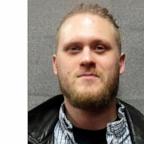Part III: Not Enough Treatment for Heroin Scourge
B A L T I M O R E, March 14 -- Baltimore's heroin problem is already the worst in the nation, but it could get even worse if the city doesn't do more to treat addicts, experts and officials say.
A federal report released last month predicted, "The number of heroin addicts in [Baltimore] will continue to rise."
Dr. Michael Hayes, medical director of the Center for Addiction Medicine, says the way to head that off is to put a greater emphasis on treatment.
"The dope dealer is open 24-7-365. We're not … You've got to have treatment easily accessible and available, affordable and capable," he says. "If you don't, then you're not going to be able to compete with that dope dealer."
Mayor Calls for More Treatment Programs
Tom Carr, the director of the Washington/Baltimore HIDTA program, a joint federal, state and local effort, says more agencies need to get involved.
"Law enforcement is the 'holding-the-line' public safety end of it, but to cure the health problem, you need the health agencies, the health providers to get more involved," he says. "Unless we make a concerted effort to change what we've been doing, things aren't going to get any better."
The city's mayor, Martin O'Malley, agrees.
"Top priority is drug treatment," the mayor said in a recent interview with The Baltimore Sun. "[C]learly we need to invest more into drug treatment so that our strategy is better enforcement, better drug treatment and more active intervention in the lives of our young people."
This year, Baltimore received $8 million in state funds for drug treatment. With Maryland Gov. Parris Glendenning pledging to double that figure to $16 million for 2002 and increase it to $25 million the following year, the mayor's office is promising progress.
There were a total of only 3,638 slots for methadone treatment — the most common heroin treatment — available citywide last year, according to the Maryland Alcohol and Drug Abuse Administration. O'Malley spokesman Steve Kearney says the city will double the number of slots in government-funded methadone programs and dramatically increase the overall level of treatment available to heroin addicts next year.




